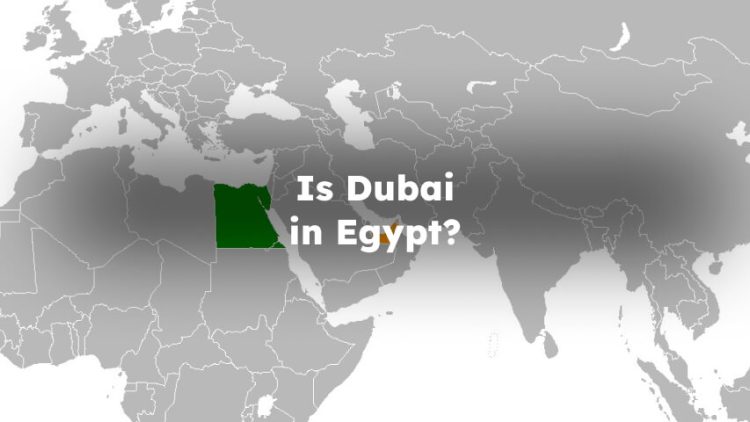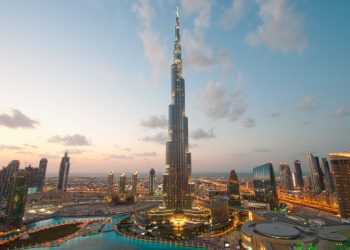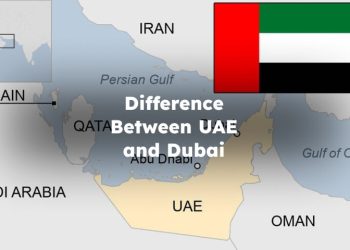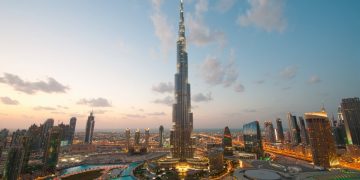The Middle East is a region that is full of history, culture, and diversity. However, its geography can sometimes be confusing, particularly for those who are not familiar with the area. A frequent question that is asked is this one, “Is Dubai in Egypt?” This article on Indubaimall seeks to clear up this misunderstanding while offering a detailed look at the geography of Dubai and Egypt in the Middle East. We will explore the locations of these two important cities, the borders of different countries, and the distinctive characteristics that make this region so interesting.
Where is Dubai Located?
To answer the question “Is Dubai in Egypt” clearly, we should say that Dubai is not located in Egypt. Therefore, Dubai is in which continent? It is one of the seven emirates that form the United Arab Emirates (UAE). Where is Dubai? It is positioned on the southeastern coast of the Arabian Peninsula. Dubai is famous for its contemporary architecture, high-end shopping, and lively nightlife. The city lies on the Persian Gulf and it is adjacent to the emirate of Abu Dhabi to the south, Sharjah to the northeast, and the desert to the east. Is Dubai a country or a city? Dubai is situated on the continent of Asia, and is regarded as one of the key cities in the Middle East.
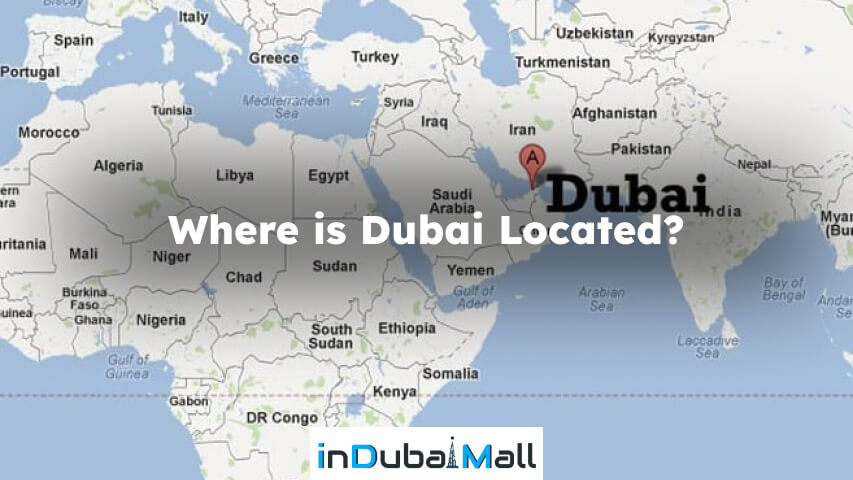
Egypt Geographical Context
Is Egypt in UAE? No. Egypt, in contrast, is found in the northeastern part of Africa and stretches into the southwestern part of Asia, which makes it a transcontinental nation. It is surrounded by the Mediterranean Sea to the north, the Red Sea to the east, Sudan to the south, and Libya to the west. Cairo, the capital city of Egypt, is located close to the Nile River. Ancient Egypt was divided into four main regions, with the first two being Upper and Lower Egypt. It might seem strange that Upper Egypt referred to areas in the south, but this was because of the direction of the Nile’s flow. Upper Egypt consisted mainly of a river valley, and it measured just two miles at its narrowest point and 12 miles at its widest. It was flanked by tall cliffs on both sides. Lower Egypt, on the other hand, was the expansive delta located where the current city of Cairo stands.
Comparing Dubai and Egypt
When you are comparing Egypt and Dubai, it is crucial to consider the unique characteristics and dynamics of each city. We will compare and contrast Egypt and Dubai, while we are taking into account the current status of each one in order to help you make informed decisions.
Climate
Dubai has an arid desert climate with extremely hot summers and mild winters. Egypt also has a desert climate but it offers slightly more seasonal variation, especially near the Mediterranean coast.
Economy
Dubai’s economy is driven by real estate, tourism, finance, and trade. It is also a global business hub. Whereas, Egypt’s economy is more diversified with strong sectors in agriculture, tourism, and the Suez Canal, though it faces more economic challenges.

Culture and Heritage
Dubai is a modern cosmopolitan city with a blend of cultures because of its high expatriate population. On the other hand, Egypt is a rich in ancient history and culture, home to the Pyramids, the Sphinx, and a strong Arab identity.
Tourism
Dubai attracts tourists with luxury shopping, futuristic architecture, and entertainment. Egypt draws visitors seeking historical and archaeological wonders like Luxor, the Nile cruises, and ancient temples.


Political Structure
Dubai is one of the seventh emirates that make up the UAE. It is governed by a hereditary monarchy, and the ruler of Dubai serves as the Vice President and prime Minister of the UAE. While the UAE has a federal structure, each emirate retains considerable autonomy, especially in local matters. Dubai rulers wield significant power over the emirate’s governance, economy, and legal system.
On the other hand, Egypt is a unitary republic with a semi-presidential system. The president is the head of state and holds significant executive powers, that is including defense and foreign policy. Egypt also has a unicameral legislature which passes laws and supervises the executive branch.
Is Egypt Nnear Dubai?
Egypt is a country full of old wonders and new sights, waiting for you to discover its deep history and lively culture. When you book affordable flights from Dubai to Egypt, you’re stepping into a place full of amazing things to see and do. Take a look at the famous pyramids and the Sphinx in Giza, which are part of one of the world’s earliest civilizations. Egypt and Dubai are located in different parts of the world; therefore, neither is Dubai near Egypt or Egypt is near Dubai. Dubai is in the United Arab Emirates, which is in the Middle East, and Egypt is in North Africa.
The distance between them is quite far, so you need to fly by airplane to get there. Therefore, it is not possible to ask “is Dubai Egypt?” or “is Dubai located in Egypt?” We should say that the straight-line distance from Dubai to Cairo, which is a big city in Egypt, is more than 2,400 kilometers, and flying from Dubai to Cairo takes approximately 3 to 4 hours. It is also possible to get Egypt from Dubai by car. The straight drive from Dubai to Cairo is 1,963 miles (3,158 kilometers), and with normal traffic, it should take about 1 day and 8 hours to complete. Therefore, it seems that Egypt is not so near Dubai according to these facts.


